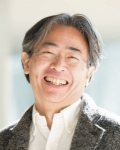- HOME
- Research
- Researcher's Profile
- Kenryu NAKAMURA
Researcher's Profile

- Senior Research Fellow
- Kenryu NAKAMURA
- Research on Individually Optimal Learning
- LEARN : Laboratory for Research on Individually Optimal Learning
- kenryu
 bfp.rcast.u-tokyo.ac.jp
bfp.rcast.u-tokyo.ac.jp
- Tel
- 03-5452-5064
- FAX
- 03-5452-5064
Biography
| March 1984 | Graduate School of Education, Hiroshima University |
|---|---|
| April 1984 | Research Assistant, Faculty of Education, Kagawa University |
| October 1986 | Associate Professor, Faculty of Education, Kagawa University |
| March 1992 | Visiting Scholar, University of Kansas: University of Wisconsin-Madison |
| March 1996 | Visiting Scholar, University of Dundee |
| April 2005 | Project Professor, RCAST, The University of Tokyo(UTokyo) |
| April 2008 | Professor, RCAST, UTokyo |
| April 2022 | Senior Research Fellow, RCAST, UTokyo RCAST, UTokyo |
Research Interests
ICT (Information Communication Technology) can handle huge amounts of stored information efficiently and has brought great benefits to our daily life. Due to this technical advancement, our society is increasing its pace of change, however there are more and more people who find it difficult or impossible to adapt themselves to this change. This trend is building a new social barrier that is closely related to the problems of today's society, such as depression, unemployment, and suicide.
Our research theme aims to break this barrier. We have an interdisciplinary research team that consists of psychologists, engineers, rehabilitation and special education specialists, products designers and artists, in order to accomplish our goal. The members conduct research on empowering personal competence using assistive technology, educating about diversity, and the provision of reasonable accommodation for those to whom this barrier exists.
Barrier-free research outcomes should be practical and realistic. Therefore, our approach is to utilize everyday mainstream technologies as a form of assistive technology, rather than developing new special technologies. Working with people who have disabilities and face social problems enriches the practicality, reality, and uniqueness of our research.
Our research theme aims to break this barrier. We have an interdisciplinary research team that consists of psychologists, engineers, rehabilitation and special education specialists, products designers and artists, in order to accomplish our goal. The members conduct research on empowering personal competence using assistive technology, educating about diversity, and the provision of reasonable accommodation for those to whom this barrier exists.
Barrier-free research outcomes should be practical and realistic. Therefore, our approach is to utilize everyday mainstream technologies as a form of assistive technology, rather than developing new special technologies. Working with people who have disabilities and face social problems enriches the practicality, reality, and uniqueness of our research.

